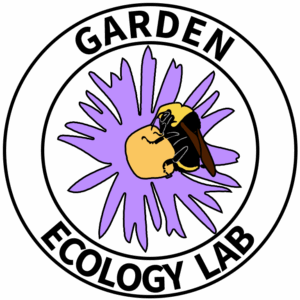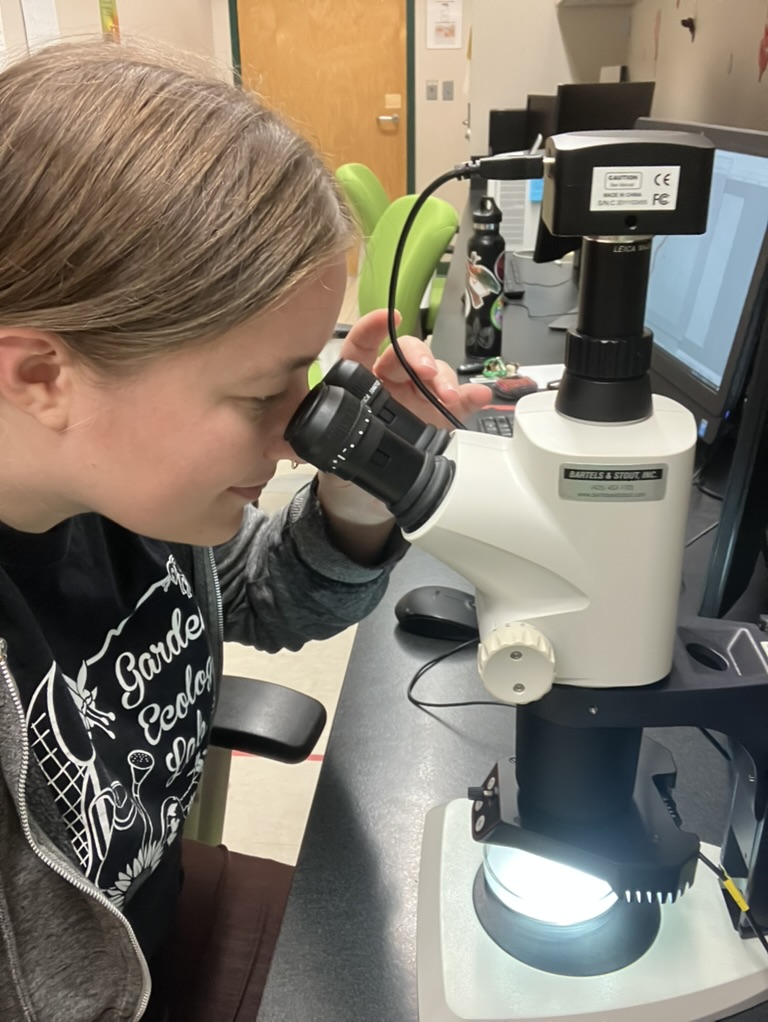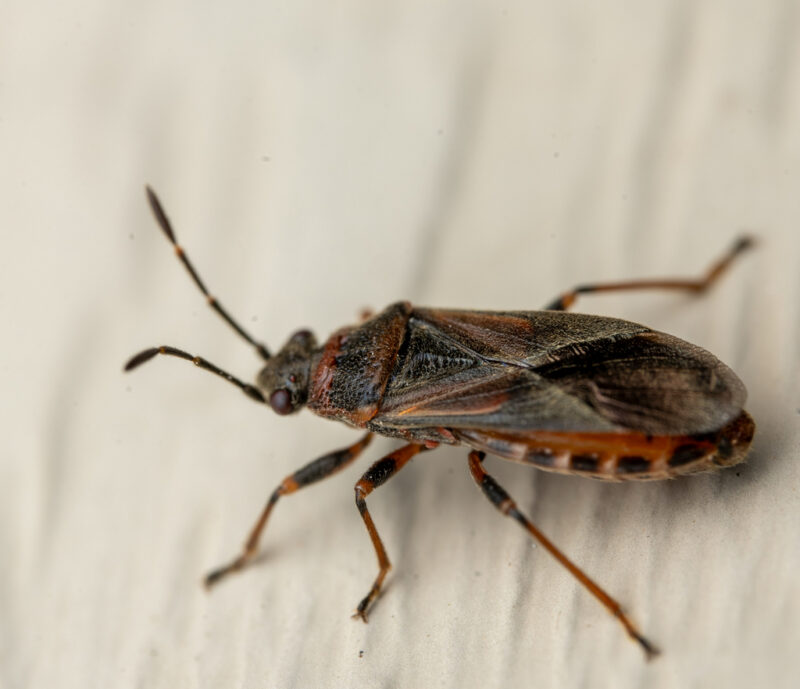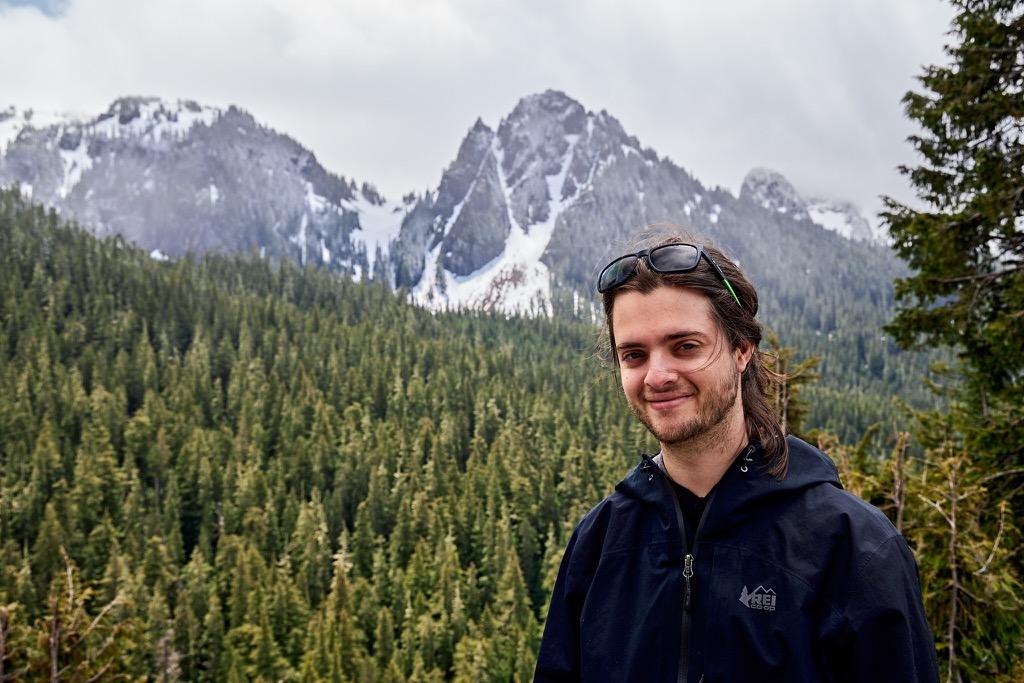My name is Nicole Bell, and I’m a first-year master’s student in the Garden Ecology Lab. I was born and raised in Oregon, and I’d like to think that part of the reason I’ve ended up in the field of horticulture/entomology is because I was surrounded by bugs and flowering plants growing up. My childhood backyard was filled with plants, bugs, wild bunnies, and raccoons (and our yellow lab, Bella). It was hard not to be fascinated by all the life that’s possible in just one space.
I completed my H.B.S. in Environmental Sciences here at Oregon State University in 2020. I chose to study environmental sciences because when I was entering college, I knew I cared about science and climate change, but I wasn’t sure what exactly I was interested in. It was an overwhelming decision to try and narrow down a field of study when I wasn’t even sure what the options were yet. I’m grateful that the summer before my freshman year of undergrad, my mom encouraged me to get a job… and there was an opening at Dr. Sagili’s Honey Bee Lab in the Horticulture Department. I had never worked or even thought much about bees/pollinators before, let alone considered making pollinators my focus. Long story short, I got the job as an undergraduate worker in the lab, and I learned so much about both lab and field work.
I worked at the Honey Bee Lab for over 4 years. Towards the end of my freshman year, though, I wondered what working with native pollinators would be like. I found a project offered through the URSA Engage program at OSU: studying the impacts of wildfire severity on offspring food provisions for a native bee (the blue orchard mason bee, Osmia lignaria) at the Forest Animal Ecology Lab in the Forestry Department with Dr. James Rivers. I designed an experiment and wrote my undergraduate thesis about mason bees, and I am grateful for my experience there, as I got to learn about the integration of bees and their environment. When I finished and defended my thesis, I was approaching graduation. I knew I wanted to take some time off school to enjoy reading and learning about topics that interested me outside of a classroom setting.
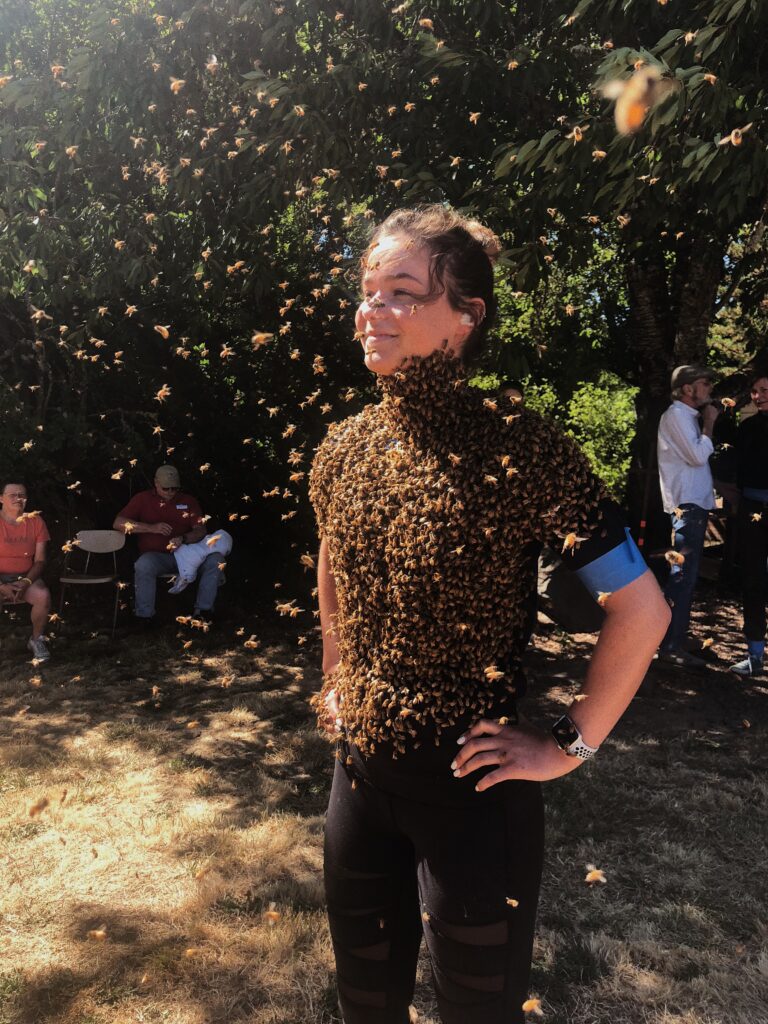
Science communication has become a big passion of mine. While most of my undergraduate experience (in the Honey Bee Lab and Forest Animal Ecology Lab) was hard science, either in the field or in the lab, I craved combining my passion for writing with my interest in expressing the implications of science to the public. My mom found a job posting (again… thanks mom!) for an agricultural science writing position at Washington State University, specifically the Center for Sustaining Agriculture and Natural Resources (CSANR). I worked with an amazingly supportive and intelligent group of scientists: they gave me publications to write blog posts about, and they helped me to edit the pieces into works I am proud of. The collaboration that the team members at CSANR have is inspiring and only bolstered my interest in communication and teamwork. While none of my articles on AgClimate were specific to pollinators, the knowledge I gained about agriculture in general and how to put together a synthesized blog post about a complex study was invaluable.
I met with several different potential graduate advisors, and I was amazed with Dr. Gail Langellotto’s knowledge and passion for native pollinators and their urban habitats. Dr. Langellotto also had projects that piqued my interests and would allow me to curate a thesis that blends science and communication. While I’m just now beginning work on the methods for my thesis, I’ll be conducting a comprehensive literature review on bee communities in urban and community gardens. Additionally, I will create an iNaturalist guide on native bees in the Portland, Oregon, area.
One of my favorite things about native pollinators is just how many species are out there. I feel like I haven’t even scratched the surface with my current knowledge about these ecosystems and how they function, so I couldn’t be more excited to learn from other members of the lab and from my research.
What I love most about bugs, bees, and insects alike may be this: there’s a whole world underneath us and above us that we can so easily miss if we don’t look for it.
